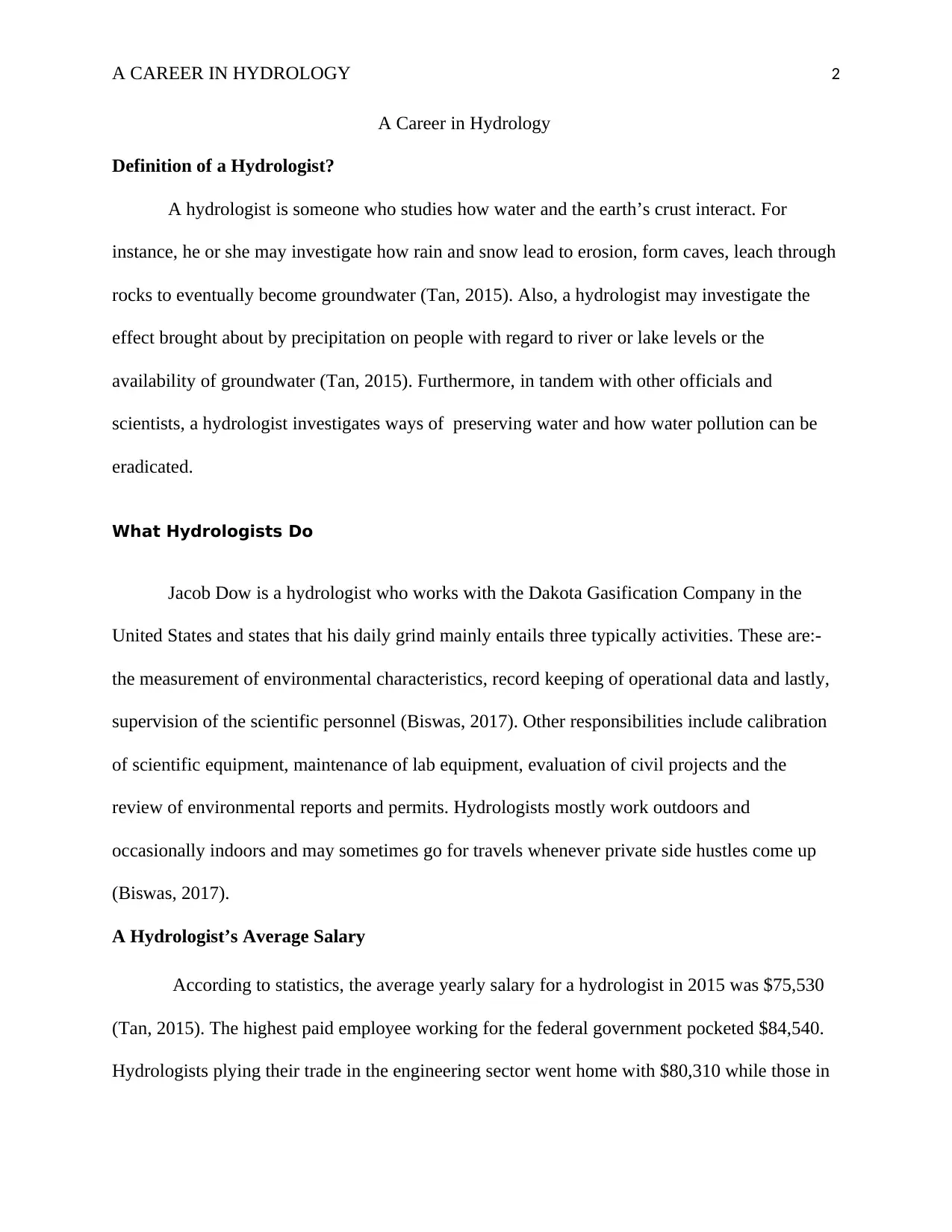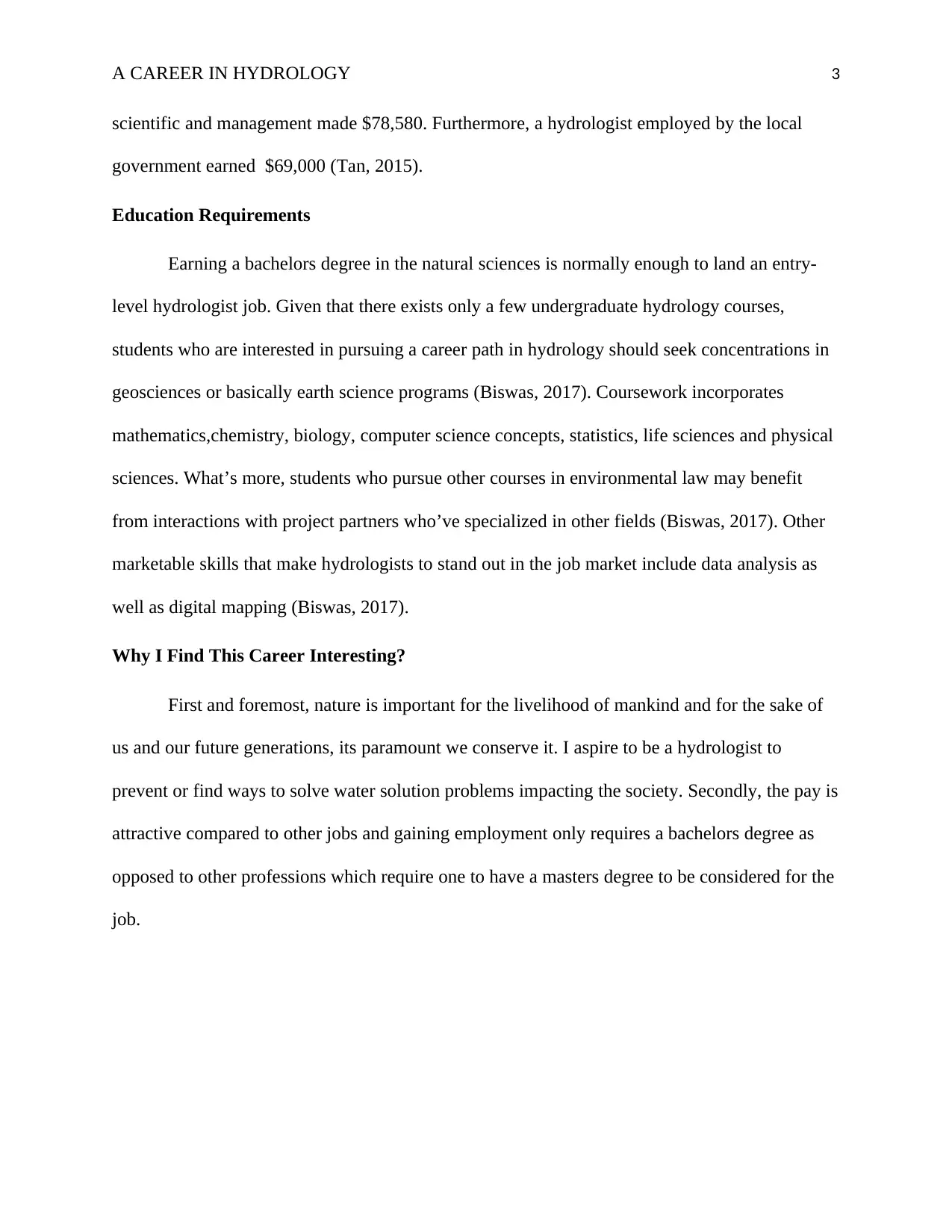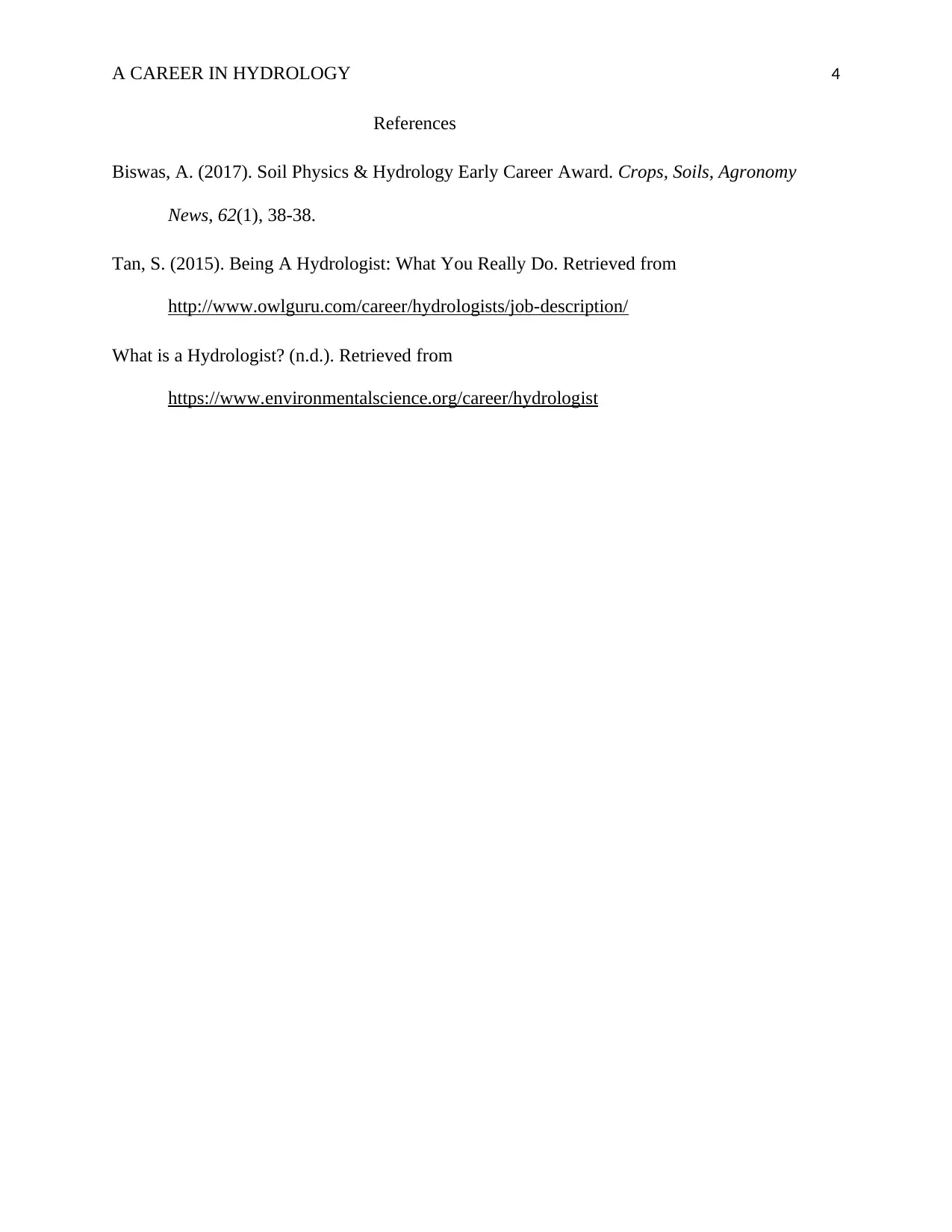Hydrology Career Path: Job Description, Education, and Salary Analysis
VerifiedAdded on 2023/06/12
|4
|637
|72
Report
AI Summary
This report provides an overview of a career in hydrology, defining the role of a hydrologist as someone who studies the interaction between water and the earth's crust. It outlines typical daily activities, such as measuring environmental characteristics, record-keeping, and supervising scientific personnel. The report also includes salary information, with the average yearly salary for a hydrologist in 2015 being $75,530. Education requirements are discussed, noting that a bachelor's degree in natural sciences is usually sufficient for entry-level positions, with concentrations in geosciences being beneficial. Marketable skills like data analysis and digital mapping are also highlighted. The report concludes with a personal interest in the career, driven by a desire to conserve nature and address water solution problems, coupled with the attractive pay and relatively lower educational requirements compared to other professions. The report references articles from Crops, Soils, Agronomy News and owl guru.com to support its findings.
1 out of 4





![[object Object]](/_next/static/media/star-bottom.7253800d.svg)